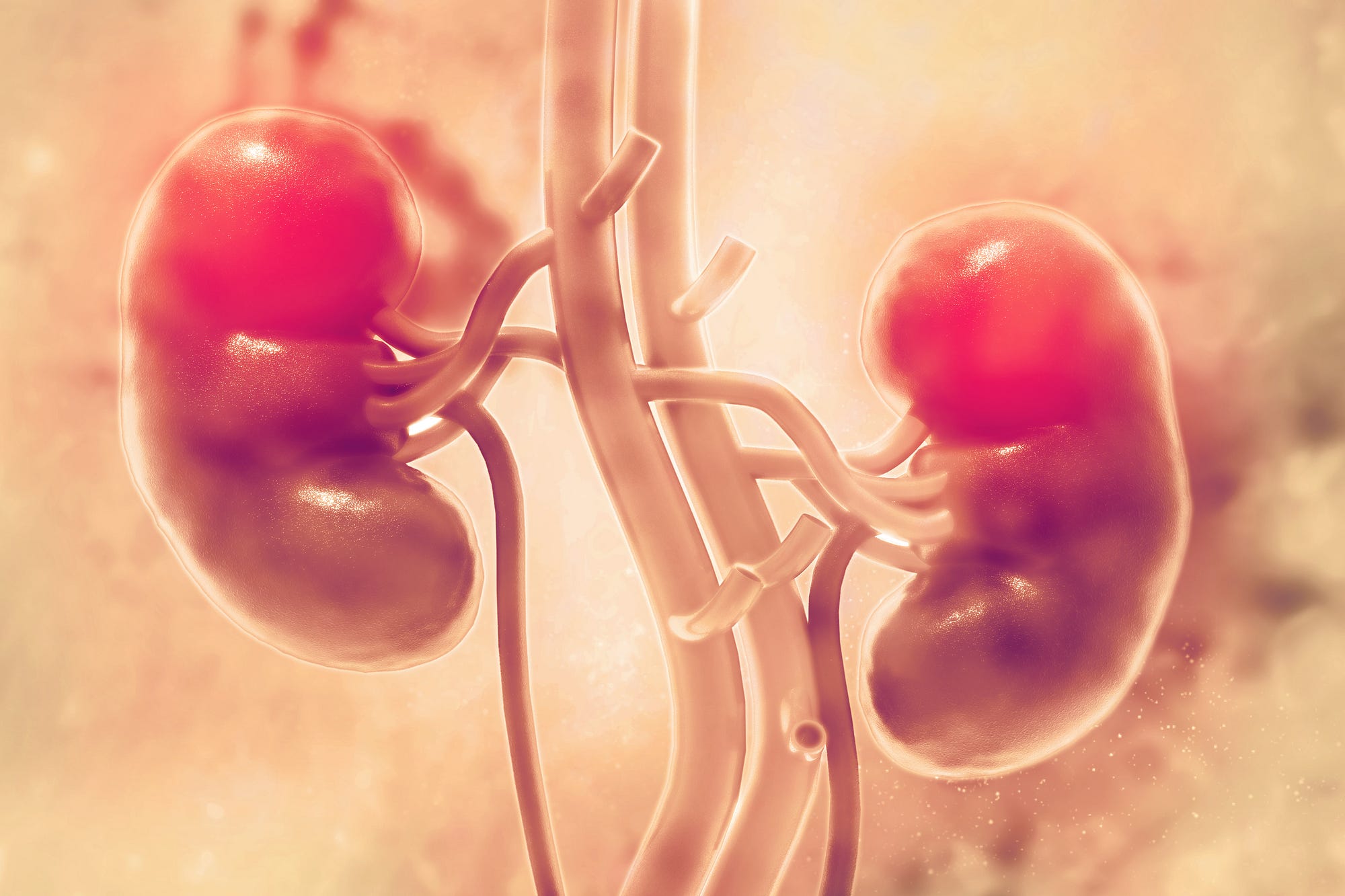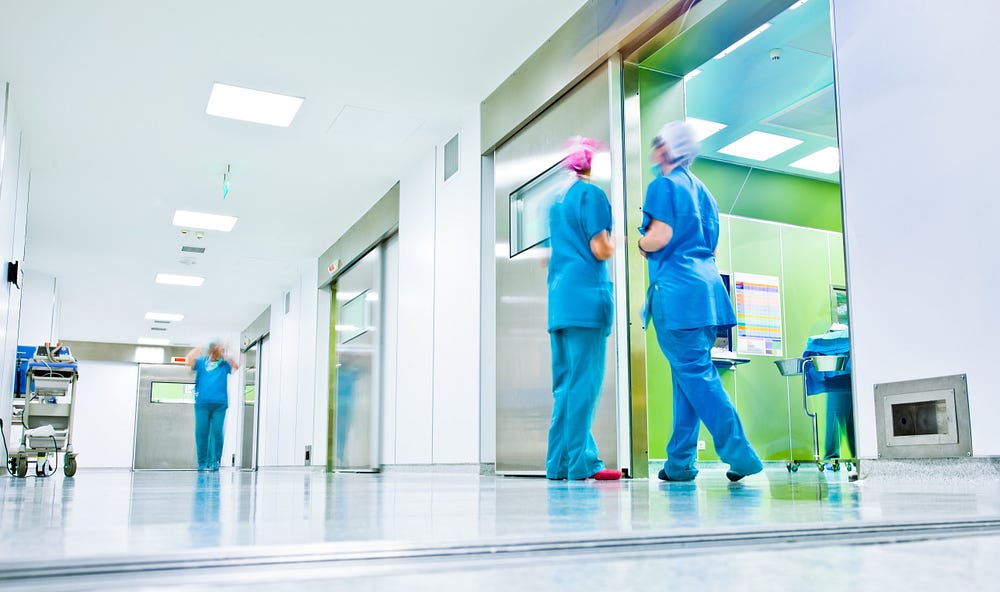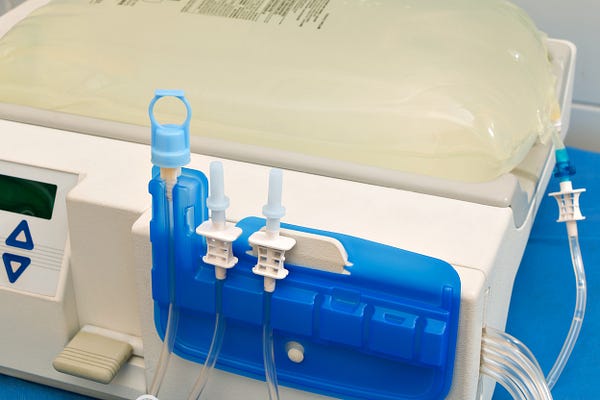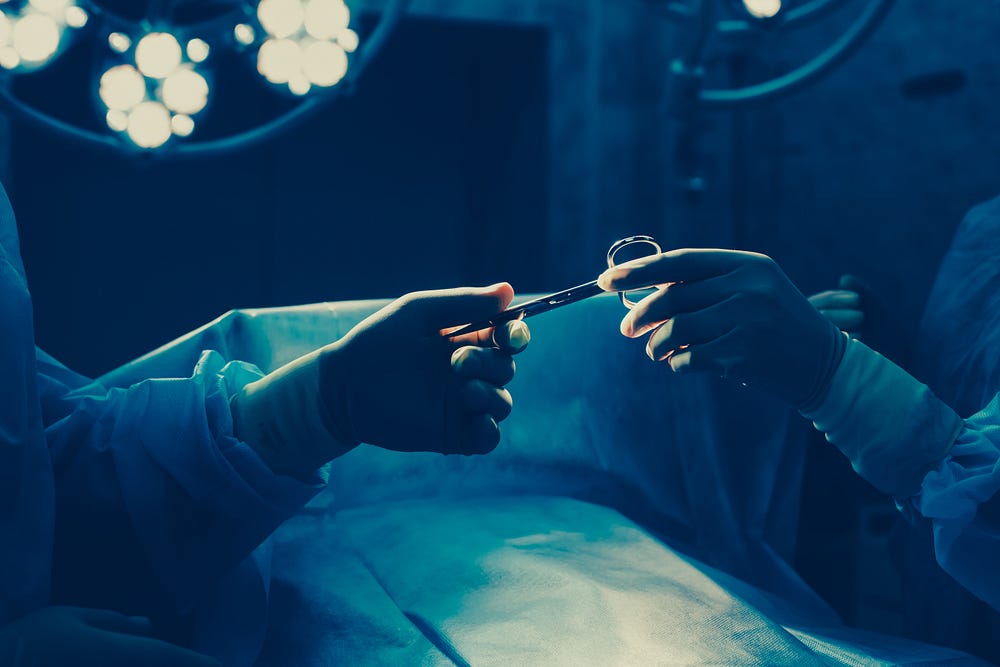
I am
fortunate enough to be a member of the kidney transplant club. This
process isn’t as simple as getting sliced open, sewn up, and you’re good
to go. No such luck. Thanks to modern medicine I was able to get off of
dialysis. Also of course, thanks to my awesome wife who donated the
organ.
How did i get here?

I
inherited a kidney disease from my mother. The doctor assured me that
it wasn’t a problem as long as I take care of myself. However, being
young and irresponsible, I wasn’t exactly cautious about my health. In
my 20’s I unknowingly developed gout. I saw a doctor but the gout was
misdiagnosed as tendinitis, so I was unable to treat it properly. High
blood pressure problems plagued me as well, but I mostly shrugged them
off.
The day my kidneys shut down
Being
the fun loving youth that I was, I had decided to attend a party. While
at my friend’s house I started to feel unwell, my chest was pounding
and I felt pretty weak. I thought maybe I’d had one too many. The next
day breathing was a bit difficult and weakness persisted. This went on
with increasing intensity until Wednesday of that week, about three
days. I’d had very little food, couldn’t breathe, and was beginning to
black out. I was taken to the hospital and told that I looked a bit
pale. Once my blood pressure was checked however, it was determined that
I was in stroke territory.

Hospital
Once
I was wheeled into the ER, I was told that my kidneys had failed, and
my blood pressure was dangerously high. Apparently my kidneys had been
failing all week and they decided to crash that day. It took about 20
hours to get my blood pressure under control, and I was notified that I
needed to go on dialysis. I was also told to quit smoking that day or I
wouldn’t live much longer at all.
My
whole life changed that day. My nutrition was strictly monitored. I was
put on a renal diet, which is basically eating with salt, potassium,
calcium, and phosphorous restrictions and taking some 40 pills a day to
manage my blood pressure and electrolytes, among other things. I am
fortunate to have had an amazing medical staff. Without them, I shudder
to imagine how things could have turned out.
What is Dialysis?
Dialysis
is the clinical purification of blood by filtration, as a substitute
for the normal function of the kidney. It means that a machine helps to
filter your body’s waste products. There are two methods. Peritoneal,
which involves filtration through the peritoneum in the abdomen. Or
Hemodialysis, filtration of blood through a large machine. It sucks but
it keeps you among the living.
Me and my Dialysis machine become bros

I
had the option of picking what kind of dialysis I wanted. I chose
Peritoneal Dialysis, a procedure in which a tube is placed in my
peritoneal cavity to carry fluids to and from my body. The surgery was
about an hour. My particular treatment restricted my fluids, allowing me
only 1 liter of liquid per day. My treatment lasted for about 9 hours a
night, everyday. It takes about an entire wall’s worth of supplies,
around 30 boxes of fluid that weigh 25 lbs each, and two boxes of
regular supplies. My machine, referred to as a cycler, hums like a loud
AC all night. Some funny smelling liquid goes inside of me, dwells
within for a while and comes back out looking like pee. Dialysis alone
isn’t enough to protect the kidney, nutrition is still a huge factor in
my well being. The treatment itself was difficult for me. My chest felt
too full and acid reflux was a murderous, hateful thing to go through.
Sleep was next to impossible due to feeling so full. Trying to keep my
catheter from tangling was also a hassle. So my wife and I decided to
explore other options.
The search for a transplant donor
The
process leading up to being listed for transplant can be complicated.
First, you have to be healthy enough for the surgery itself. This means
arriving at the target Body Mass Index (BMI) of 18–22. As well as having
your blood pressure under control. Second, you must not smoke tobacco,
or take illegal drugs, do so and you will be taken off the transplant
list. Third, you must have below 20% remaining kidney function and be
displaying symptoms of toxicity. The final and, in my opinion, most
frustrating step, is a financial and mental evaluation. The financial
evaluation determines if you can afford medication. If you cannot take
care of a precious organ, you will not be placed on the list. The mental
evaluation is to make sure you are of stable mind and mood and are
willing to continue living.
These
steps, once met, only get you listed. The wait for a donor, depending
on where you get listed, can be anywhere from 4 to 8 years. I chose
University of California Davis. Although it’s not uncommon to wait much
longer than that. To determine a donor’s compatibility for a
transplantation, a simple blood and urine test is administered. Luckily
for me, my wife was compatible, and we were able to schedule our surgery
in about three months. The donor is under the same perquisites as the
recipient, and has to be healthy enough to donate as well. Donating a
kidney does not diminish or harm the donor in any way. A fact I was
quite thankful to find out, because I was afraid of risking my wife’s
health.
There
is also something called the Final Directive. There is a meeting that
my wife and I had to have with a counselor in which we discussed my
wishes for worst case scenarios. The risks for surgery were discussed at
length. I also had to designate a caretaker for both of us. All of this
goes into a document that the hospital was required to have a copy of
on file.

Transplant
Any
major surgery carries risk, and this is no exception. The procedure for
the donor is about 4 hours long and is done about an hour before the
recipient goes under. The recipient’s procedure is 3–5 hours, and the
new kidney goes in the pelvis. A strange place, but it’s easier and
safer than replacing the old kidneys.
A
common misconception is that transplant is a cure. This is not so.
Transplant is another type of treatment, albeit the most preferable,
since it comes with the highest quality of life. Also, transplant is not
permanent. There is the risk of rejection, infection, and medication
conflicts. The first three months after transplant are just as
challenging as some of my hardest days on dialysis.
For
the first three months I had to be in a nearly sterile environment. I
had to wear a face mask for 24 hours everyday and eliminated outside
contact. I could not be around anyone who was sick because I would catch
whatever they had, and risk damaging the new kidney. Raw meats and
unwashed veggies are out, so no more delicious rare steak, no more
sushi. Unwashed foods can carry bacteria that could make me sick. The
medication side effects are also strongest in this time, and trust me
when I say that transplant meds are some intense stuff. Hallucinations,
tremors, fevers, flushing and my stomach was upset for most of the first
60 days. Also, recovering from major surgery to the abdomen is hell.
Can’t cough, laugh, or turn, and sneezing is a nightmare. I never knew
how important abdominal muscles were until this experience. Needless to
say I will never make fun of anyone with a hernia again.
We
even had to make a rotating schedule between my family and closest
friends, my wife and I needed round the clock care during our recovery.
My weekly appointments also became a three hour quest because I could
not drive myself. Some poor soul had to do it for me. I am eternally
grateful for the help, but I’m glad it’s over.

How I feel today
After
4–5 months, I was able to move my midsection. I acclimated to the
medications, and my energy level rose. My appetite returned, and I
started to feel like a human being again. Recovery time for my wife was a
whopping 40 days. She was back to work and lecturing me about my food
in no time. After I was sufficiently healthy to be on my own, I began to
volunteer at my local Kaiser Permanente as a guest speaker on dialysis.
I shared my experiences with the patients. I also answered any
questions for people who were considering their dialysis options.
My
disease problems are far from solved. I will always have to be prepared
to be back on dialysis and I’ll definitely never be a cage fighter.
There are many things I can no longer do, namely sports. But thankfully,
this has bought me at least 10 years of time to eat some normal food,
travel with my wife and dear friends, and accomplish as many goals as I
want. It’s not a cure, but it damn sure beats not having any choices at
all.
No comments:
Post a Comment